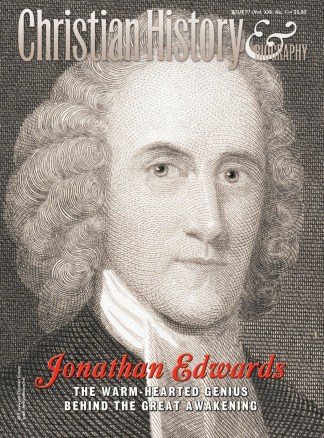It is wonderful to see what a spell he casts over an audience… . I have seen upwards of a thousand people hang on his words with breathless silence, broken only by an occasional half-suppressed sob.”
These were the words of Sarah Edwards, in October 1740, describing British evangelist George Whitefield.
When, on February 12, 1740, Jonathan Edwards wrote to offer his pulpit to Whitefield, he no doubt hoped the British evangelist’s visit would spark another revival like the one of 1734-35. But in a series of sermons Edwards preached during and after Whitefield’s visit, we find that Jonathan’s awe of the Grand Itinerant was more reserved than Sarah’s.
Edwards’s “sower” series, preached on Matthew 13:3-8 during November 1740, expresses the Northampton pastor’s concern that, like many of those swept up in the excitement of the earlier revival, Whitefield’s hearers might become “stony-ground hearers.” Those who, in 1734-35, had been subject to the strongest emotions and told the most dramatic conversion stories had slipped soonest back into a cold, worldly state—though by belief and behavior they still seemed to be Christians.
Edwards worried that Whitefield’s stirring, flamboyant preaching style was particularly apt to produce religious hypocrites. Such preaching raised the affections (the heartfelt convictions) of hearers by its force of argument, “aptness of expression,” and “the fervency, and liveliness, and beautiful gestures of the preacher.” But would such affections last?
“Religion that arises only from superficial impressions,” said Edwards, “is wont to wither away … when it comes to be tried by … difficulties.”
Such preaching had its place. Whitefield might scatter the seed. But it would be the pastor, Edwards, who would nourish the tender shoots and shield them from the heat of the noonday sun. Only thus would the perseverance that was the mark of true saving faith triumph in the lives of the awakened.
Adapted from Ava Chamberlain, “The Grand Sower of the Seed: Jonathan Edwards’s Critique of George Whitefield,” New England Quarterly, September 1997.
Copyright © 2003 by the author or Christianity Today/Christian History magazine. Click here for reprint information on Christian History.










